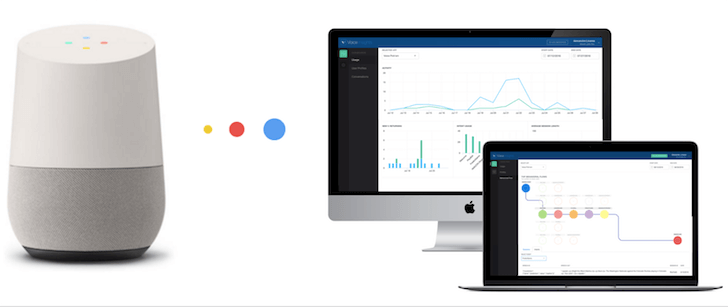testsetset
Web developers have Google Analytics. Mobile publishers have Flurry. There are analytics for servers, analytics for marketing, and analytics for sales.
Now we also have analytics for smart agents.

Today as Google announced Actions, its version of Alexa skills, VoiceLabs is launching free analytics for the platform. VoiceLabs already offers analytics for Alexa skills, and now developers with feet in both Amazon and Google smart assistant camps can get data on usage and effectiveness of their voice-driven interaction with users and customers.
June 5th: The AI Audit in NYC
Join us next week in NYC to engage with top executive leaders, delving into strategies for auditing AI models to ensure fairness, optimal performance, and ethical compliance across diverse organizations. Secure your attendance for this exclusive invite-only event.
What kind of analytics, you might ask?
“In addition to the necessary metrics including unique usage, retention, and session analysis, VoiceLabs provides new visualizations to quickly analyze and improve the user experience,” the company says. “These capabilities include voice pathing, user profiles and voice KPIs.”
 In other words, you’ll understand how people are using your services, whether they continue to use them over time, and some kind of metrics on the quality of customers’ experience. Voice pathing is particularly interesting, as it shows you the flow of conversations your customers are having with Alexa.
In other words, you’ll understand how people are using your services, whether they continue to use them over time, and some kind of metrics on the quality of customers’ experience. Voice pathing is particularly interesting, as it shows you the flow of conversations your customers are having with Alexa.
Data here might show blockages or inefficiencies that you can improve over time.
VoiceLabs is led by Adam Marchick, formerly CEO of in-app marketing startup Kahuna, so he understands data, analytics, and one-to-one engagement with customers. I asked him via email how he plans to monetize over time, and he was a little cagey:
“We have advisors from AdMob, Flurry and Omniture — the voice ecosystem is wide open and we are leading the charge,” Marchick told me via email.
As we’re seeing Amazon expand Alexa and her skills into lamps and other objects and we expect Google to do the same, marketers and customer service people will increasingly need data on the quality and usage of their interactions via artificially intelligence agents or assistants.
The ecosystem is, indeed, wide open.


